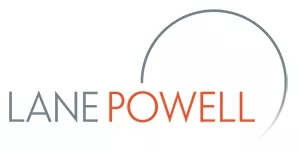As we wrote on August 10, 2020, Section 4261 of the Internal Revenue Code (IRC) generally imposes a 7.5 percent aviation excise tax (FET) on amounts paid for "taxable transportation," along with certain specific dollar fees per segment. However, certain "aircraft management services" were exempted from FET after paragraph (e)(5) was added to IRC section 4261 as part of the Tax Cuts and Jobs Act of 2017. The IRS has finalized this exemption by posting a version of the final regulations for the aircraft management services exemption to FET to its website.
Aircraft Management Services
The FET exemption applies to amounts paid by an "aircraft owner" for aircraft management services, with aircraft management services to include:
(i) assisting an aircraft owner with administrative and support services, such as scheduling, flight planning, and weather forecasting;
(ii) obtaining insurance;
(iii) maintenance, storage and fueling of aircraft;
(iv) hiring, training, and provision of pilots and crew;
(v) establishing and complying with safety standards; and
(vi) such other services as are necessary to support flights operated by an aircraft owner.1
The general theory is that an aircraft owner should not have to pay FET on amounts they pay in connection with the ownership or lease of their own aircraft.
Aircraft Owner
While the term "aircraft owner," unsurprisingly, includes a person that owns an aircraft managed by an aircraft management company, it also includes a person that leases the aircraft, other than under a "disqualified lease."2 A "disqualified lease" is defined as "a lease from a person providing aircraft management services with respect to such aircraft or a related person (within the meaning of IRC section 465(b)(3)(C) to the person providing such services) if such lease is for a term of 31 days or less."3 As such, a person that leases an aircraft for a term of 31 days or less is not eligible for the FET exemption. The final regulations also provide that the beneficiary of an owner trust is an "aircraft owner," provided that the associated lease to the beneficiary is not a "disqualified lease."
Note that the FET exemption does not cover the payment of amounts for aircraft management services by a party related to the aircraft owner (including an individual who owns an entity owning an aircraft). There has been some public discussion, however, regarding who can be construed as an agent of the aircraft owner, able to pay amounts for aircraft management services and qualify for the FET exemption. The Treasury Department and IRS may provide additional guidance on this point at a later date.
Aircraft Owner Flights Under Part 135
The final regulations provide that the FET exemption also applies to amounts paid by an aircraft owner for flights on its own aircraft operated under Part 135 of the Federal Aviation Regulations, as those flights would still be considered private flights for the owner, not flights held out to the public under a charter certificate. Why might an aircraft owner choose such a structure? Amongst other reasons, when flights are operated under Part 135 of the Federal Aviation Regulations, the aircraft management company is under "operational control" of the aircraft, assuming liability for the safe and legal operation of the aircraft, as well as civil liability risk in the event of a flight-related occurrence that causes personal injury or property damage. While this structure has been historically avoided by some aircraft owners due to the desire to avoid 7.5 percent FET on amounts paid for their own flights, the clarification set forth in the final regulations provides aircraft owners some FET-neutral optionality in determining their operational structure. Note: Part 135 of the Federal Aviation Regulations has additional FAA operational restrictions (such as length of pilot duty day, required weather reporting at the destination, runway lengths, etc.) that can sometimes limit desired flight operations, so aircraft owners must balance those operational limitations with the benefits associated with operational control lying with the aircraft management company.
Note that the aforementioned FET exemption only applies to amounts paid by an aircraft owner for flights on its own aircraft — the final regulations provide that if the aircraft management company provides a flight to an aircraft owner on a substitute aircraft (regardless of the reason), FET will apply to the "fair market value" of such flight.
Record Keeping
Each aircraft owner must maintain adequate records that will support the FET exemption. The final regulations provided that "such records may include the agreement, if any, between the aircraft owner and the aircraft management services provider, evidence of aircraft ownership, evidence that amounts paid for aircraft management services came from the aircraft owner, the aircraft management services provider's fee schedule, and documents to support any allocations required under the pro rata allocation rule."
Footnotes
1 26 USC 4261 (e)(5)(B).
2 Id. at (e)(5)(C)(i).
3 Id. at (e)(5)(C)(ii).
Originally published March 23, 2021
The content of this article is intended to provide a general guide to the subject matter. Specialist advice should be sought about your specific circumstances.


